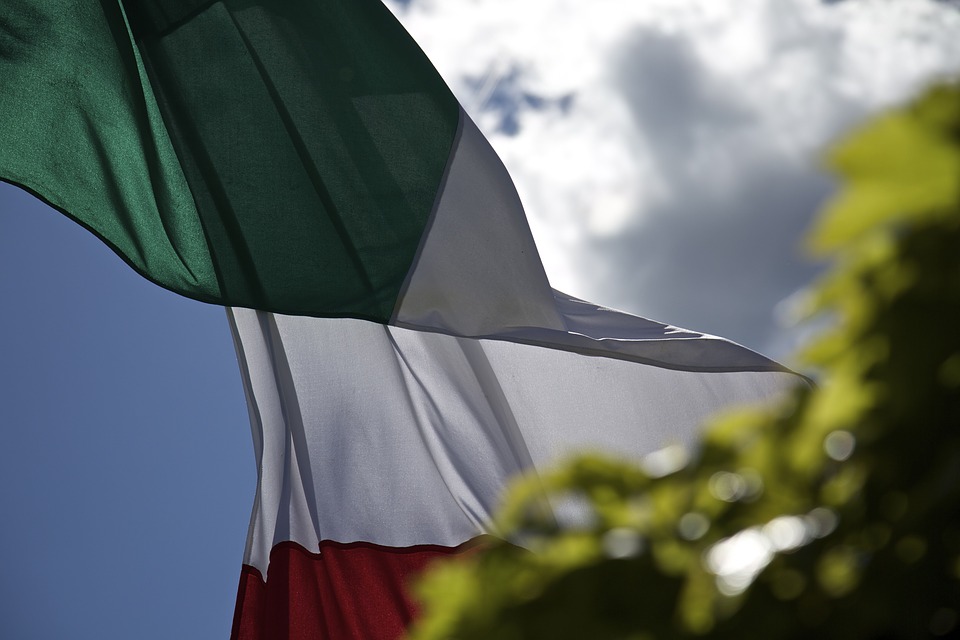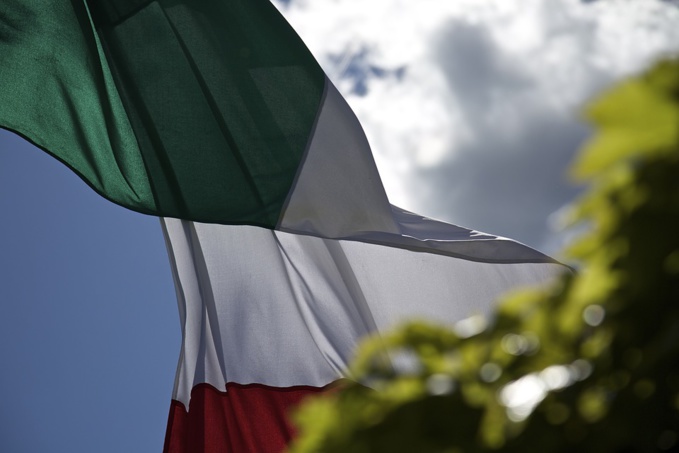Matteo Salvini is now arguing with Italian President Sergio Mattarella. The dispute arose about the fate of the 177 migrants who were rescued in the Mediterranean and brought to Italy by the ship Diciotti. The ship has been in Sicilian ports for three days, but only 29 kids were allowed to sail to the shore, and they set out on the dangerous journey without adults. The remaining passengers are forced to stay on the ship.
Salvini believes that migrants can be allowed to enter Italy on condition that other European countries share responsibility with Rome. Mattarella, however, demands that migrants be allowed to go ashore for humanitarian reasons. President rarely interferes in the government’s daily activities, but last month his willful decision ended a similar dispute over 67 migrants who arrived on the same ship, and allowed them to go ashore.
Now, says Matteo Salvini, he will not allow President Mattarella to let migrants to Italy without his consent.
"Change either the country or the minister," he declared in a video message on Wednesday night, unambiguously threatening to resign and, consequently, prompting at a government crisis.
By the way, Salvini has marred relations not only with President, but also with his partners in the ruling coalition, Five Star Movement.
The quarrel in Italy is a mirror image of the pan-European conflict provoked by migrants, which has already led to a deep split in the Old World. At the June summit, European leaders agreed to take a series of measures against migrants after the all-night talks. Creation of centers for reception of refugees both on the territory of the EU and beyond its borders is considered the most serious. However, the agreement is rather vague, and so officials are facing great difficulties in implementing the summit’s decisions.
Politico magazine managed to get a report on a meeting of ambassadors of the EU members in Brussels on July 11. It follows from the documents, for example, that Sweden and Spain and Hungary have a diametrically opposite understanding of the agreement reached at the June summit
According to Head of the press service of the European Commission Alexander Winterstein, European officials have been vigorously trying to find a way out of the next impasse. The EC has stepped up efforts to find a lasting solution to the problem of migrants. To this end, high-ranking officials of national governments, members of the EU coordinating the Union's policy should come together on Friday, August 24, in Brussels for an informal meeting on problems with migrants.
The exact composition of the mini-summit participants will be known only at the very last minute, but representatives of at least 11 states (France, Austria, Germany, Italy, Spain, Portugal, Malta, Luxembourg, the Netherlands, Greece and Ireland) are expected to arrive in Brussels. It is not excluded that there will be more participants.
source: politico.com
Salvini believes that migrants can be allowed to enter Italy on condition that other European countries share responsibility with Rome. Mattarella, however, demands that migrants be allowed to go ashore for humanitarian reasons. President rarely interferes in the government’s daily activities, but last month his willful decision ended a similar dispute over 67 migrants who arrived on the same ship, and allowed them to go ashore.
Now, says Matteo Salvini, he will not allow President Mattarella to let migrants to Italy without his consent.
"Change either the country or the minister," he declared in a video message on Wednesday night, unambiguously threatening to resign and, consequently, prompting at a government crisis.
By the way, Salvini has marred relations not only with President, but also with his partners in the ruling coalition, Five Star Movement.
The quarrel in Italy is a mirror image of the pan-European conflict provoked by migrants, which has already led to a deep split in the Old World. At the June summit, European leaders agreed to take a series of measures against migrants after the all-night talks. Creation of centers for reception of refugees both on the territory of the EU and beyond its borders is considered the most serious. However, the agreement is rather vague, and so officials are facing great difficulties in implementing the summit’s decisions.
Politico magazine managed to get a report on a meeting of ambassadors of the EU members in Brussels on July 11. It follows from the documents, for example, that Sweden and Spain and Hungary have a diametrically opposite understanding of the agreement reached at the June summit
According to Head of the press service of the European Commission Alexander Winterstein, European officials have been vigorously trying to find a way out of the next impasse. The EC has stepped up efforts to find a lasting solution to the problem of migrants. To this end, high-ranking officials of national governments, members of the EU coordinating the Union's policy should come together on Friday, August 24, in Brussels for an informal meeting on problems with migrants.
The exact composition of the mini-summit participants will be known only at the very last minute, but representatives of at least 11 states (France, Austria, Germany, Italy, Spain, Portugal, Malta, Luxembourg, the Netherlands, Greece and Ireland) are expected to arrive in Brussels. It is not excluded that there will be more participants.
source: politico.com



















